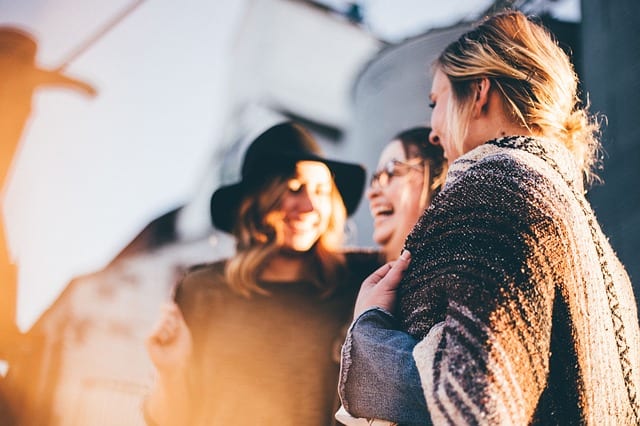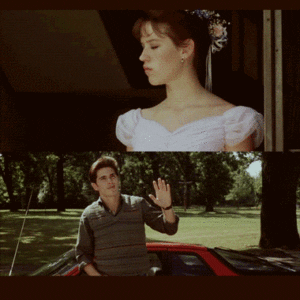I simply hate the way that women’s confidence, or lack thereof compared to men, is often framed. The authors of the “Confidence Code” noted that women’s progress has stalled and acknowledged that there is some “truth” to the fact that structural inequalities and outright discrimination still exist. But they too quickly, in my opinion, dismissed these two major elephants in the room and pointed the finger at “women’s acute lack of confidence”, which they heavily implied women are somehow biologically predisposed to.
The book profiled dozens of high powered women essentially describing Imposter Syndrome and offered this sunny advice to right all the wrongs of the patriarchy: “there’s good news…with work confidence can be acquired”.
When I would read books like this or see initiatives like this recent effort from a 10 year old girl in the United States who persuaded her Girl Scout troupe to make a specific badge to encourage girls to “Raise Your Hand”, I would worry we were at risk of normalizing the idea among the next generation of girls that they had some inherent disadvantage in the confidence wars.
No thanks, was my visceral reaction. Many years later, Catherine Fox more clearly articulated what’s wrong with this kind of logic in her book, “Stop Fixing Women”. I’ll get on with the work of fixing the structural inequalities and calling out the outright discrimination holding women back, I thought to myself. I’m not going to focus on fixing myself.
Thus, I was never going to let the side down and admit confidence was a thing for women, or for me personally. Move on folks, nothing to see here.
But recent events have led me to question my thoughts on confidence, or lack thereof. So here I am at my first meeting of “Confidence Anonymous”: “Hi, my name is Kristine, and sometimes I lack confidence”.
“Hello Kristine,” I can hear you all say.
My personal Waterloo came recently, when my friend Deborah Frances White, an extremely talented comedian and writer who created and hosts The Guilty Feminist podcast, asked me to come to the taping of a live show as a special guest and discuss “Weinstein Culture”.
(There may also have been an episode with a well-meaning boss and mentor about a year or so ago, who tried to bring this up and it ended in tears…but let’s not go there.)
Deborah, who lives in London, was on tour in Australia taping a number of live shows, and I had just seen her perform in front of a crowd of about a thousand at the Melbourne Town Hall. Of course, she smashed it.
When Deborah invited me to come up to Sydney and be a guest on an upcoming show, I immediately re-enacted the scene from one of my Bratpack/ Molly Ringwood favorites, 16 Candles. You know, that last scene where she is leaving her sister’s wedding and sees Jake, the object of her affection, parked outside waiting for her. He mouths “Hi”, and she immediately looks behind her to see if he’s talking to someone else. “Yeah, you,” he says.
I was struck down with a virulent strain of Imposter Syndrome. “You don’t want me. Surely you’re joking”, I said. “Yes I do”, was Deb’s response. “Not just me, but me and someone more famous,” I said. “No, just you,” was her reply.
Fortunately, Deb’s co-host for the Australian tour of Guilty Feminist, Cal Wilson (the nicest woman in Australian comedy), sent me a lovely text message encouraging me to do it. And then Cal very kindly humored me as I channeled my anxiety into over-preparation and peppered her with emails. “I love it all,” she replied.
I also acquired a repetitive stress injury from holding Amy Cuddy’s “Power Pose” for nearly five days straight, and I was plunged into the depths of despair when I read an article in the New York Times just days before my debut suggesting the science behind the power pose was being called into question. Fooey (not the expletive I really used). Now what am I going to do?
Spoiler alert. I flew up to Sydney, did the show in front of a live (and absolutely lovely) audience, and it was not just fine, it was fantastic. And even though I knew I was there to play the feminist straight woman to Deb and Cal’s comedic genius, I did manage to get a few laughs. (Take that husband, whose response to Deb’s invitation was, “Why would she do that, you’re not funny.”)
The first lesson in all this for my fellow members of Confidence Anonymous is to surround yourself with wonderful friends and mentors who encourage you to push past your fears and take a chance — people who believe in you, even when you falter.
But returning to the vexed question of how we talk about women and confidence, I would like to end with a little love letter to Jamila Rizvi and her book, “Not Just Lucky”, which I recently finished. (Yes, I know it was written for Millennials, not over the hill Gen X’ers like me. But no one stopped me from buying it at the trendy Fitzroy bookshop. I take this as confirmation that my excellent skin care regime is working, and I can still pass for someone ten years younger.)
Rizvi also tackles the issue of women’s lack of confidence and how this may be holding women back. But she brilliantly goes one step further and interrogates where this has come from. Crucially, she’s not inclined to point the finger at biology. Instead of casually brushing them aside, Rizvi places the confidence issue in the context of the structural inequality and outright discrimination women face.
For me, I liken Rizvi’s analysis to the death of confidence by a thousand cuts accumulated over a lifetime of walking this earth and navigating your way through the working world as a woman. I won’t bore you with stories from my formative years in New Jersey, but I will say a very difficult experience after I returned to work after the birth of my first child inflicted some particularly deep wounds.
“We all have an inner voice. A voice born of the society we’ve been raised in, and shaped by our conditioning. For women, this inner voice is far more likely to wreak havoc on our confidence in the workplace”, Rizvi writes.
“But what if we did challenge her? What if women made a deliberate and sustained effort to question our inner voices? What if instead of assuming our lack of confidence is a reflection of our lack of ability, we tried to properly understand the cause of it?” What follows from Rizvi is a kind of Realpolitik guide to confidence for women, framed in a way I can actually get behind.
As they say, the first step to recovery is admitting you have a problem.
Listen to Kristine’s debut on the Guilty Feminist here. Judge for yourself how long it took her to conquer her nerves.




